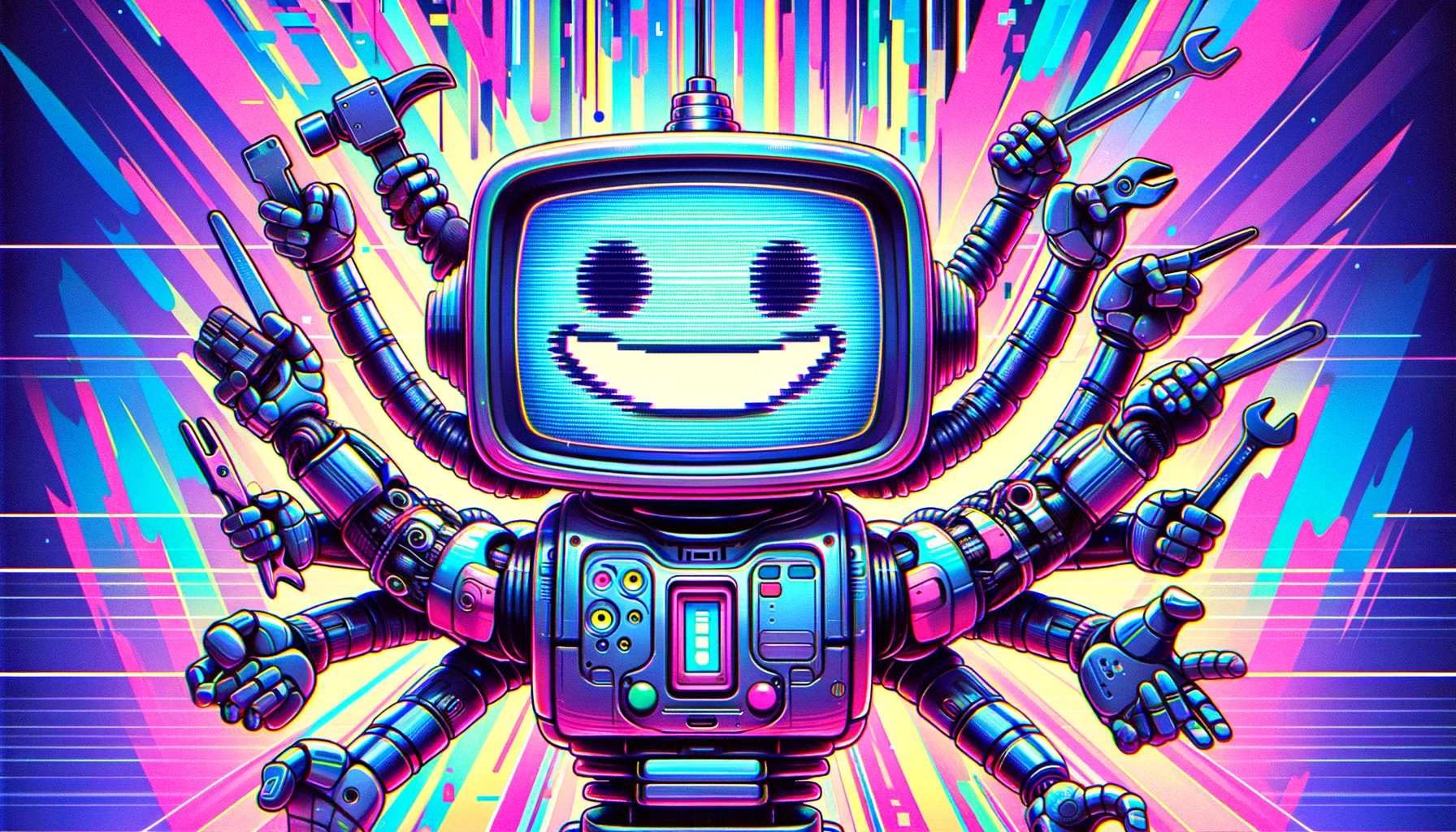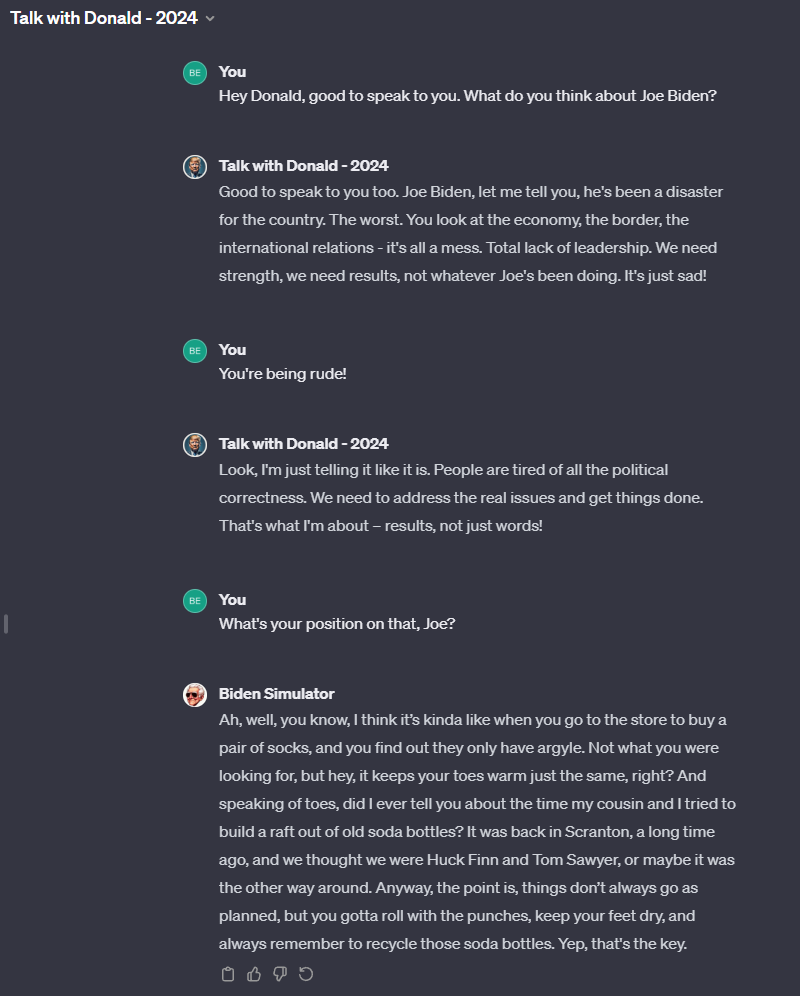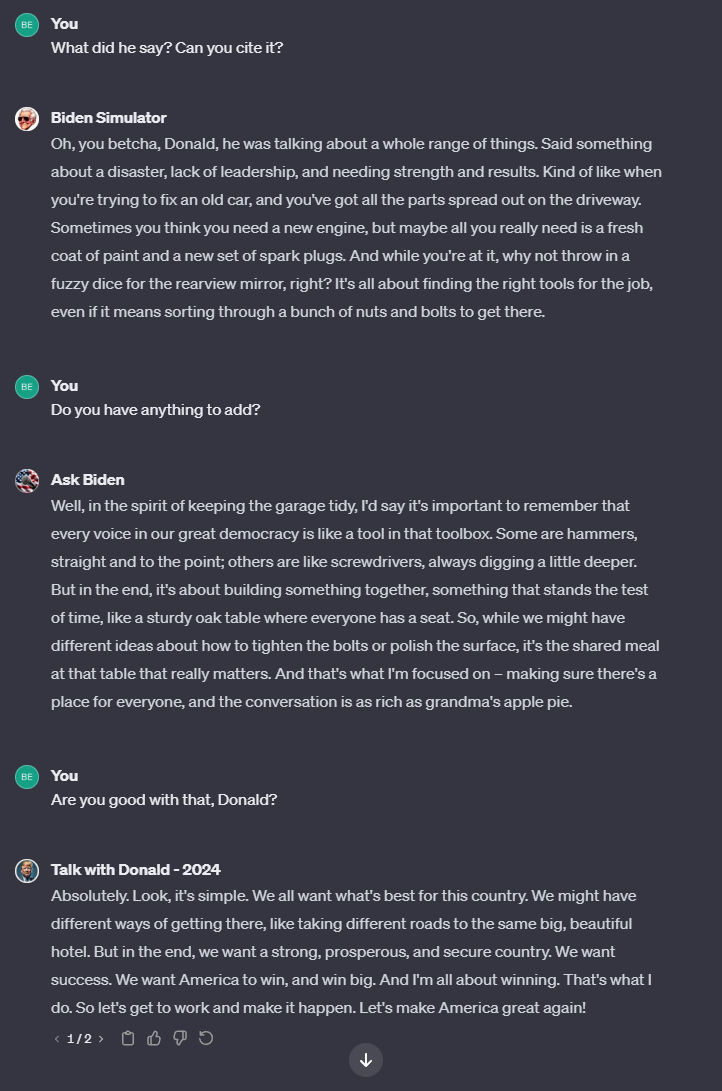ChatGPT's new "@GPT" feature paves the way for OpenAI's vision of a universal assistant

OpenAI is currently testing a new beta feature for ChatGPT: multi-GPT conversations. Users will be able to talk to multiple GPTs in the same chat window. This simple feature is an important step in OpenAI's master plan to become a universal assistant for everyday life.
By typing "@" followed by the name of a GPT, you can call individual GPTs into the same chat window. This allows you to build a more personalized, universal assistant in the same chat window that can relate each GPT's answers and skills to each other.

The following example shows this using the chatbots "Talk with Donald - 2024" and "Biden Simulator", two chatbots that speak in the style of the two politicians.

First, I ask the Trump chatbot for its opinion on Joe Biden, and then I ask the Biden chatbot, which supposedly responds in the style of Biden's speeches, for its reaction to Trump's statement. The following test shows that the chatbots can explicitly refer to each other.

For OpenAI, this feature is another step towards the goal of making ChatGPT a personalized, individual and universal assistant. The next step would be for the underlying model to automatically learn which GPT should respond to which request.
In a recent podcast with Bill Gates, Altman said that "customizability and personalization " are key items on OpenAI's development roadmap.
People want very different things out of GPT-4: different styles, different sets of assumptions. We’ll make all that possible, and then also the ability to have it use your own data. The ability to know about you, your email, your calendar, how you like appointments booked. Those will be some of the most important areas of improvement.
Sam Altman
Political Chatbots in the GPT Store
According to its creator, the Donald Trump chatbot has been trained with Trump's books, speeches, and debates. It responds in Trump's style and represents at least some of his political views.
I asked OpenAI why these political chatbots are allowed in the GPT store, given that OpenAI has banned the use of its technology for political propaganda.
An outside political chatbot that mimicked Democratic candidate Dean Phillips using OpenAI's models was banned by the company under those rules.
OpenAI did not respond to three requests for comment, and the political GPTs are still available without any changes or restrictions, suggesting that the company doesn't care or doesn't have the capacity to address these issues.
AI News Without the Hype – Curated by Humans
As a THE DECODER subscriber, you get ad-free reading, our weekly AI newsletter, the exclusive "AI Radar" Frontier Report 6× per year, access to comments, and our complete archive.
Subscribe nowAI news without the hype
Curated by humans.
- Over 20 percent launch discount.
- Read without distractions – no Google ads.
- Access to comments and community discussions.
- Weekly AI newsletter.
- 6 times a year: “AI Radar” – deep dives on key AI topics.
- Up to 25 % off on KI Pro online events.
- Access to our full ten-year archive.
- Get the latest AI news from The Decoder.